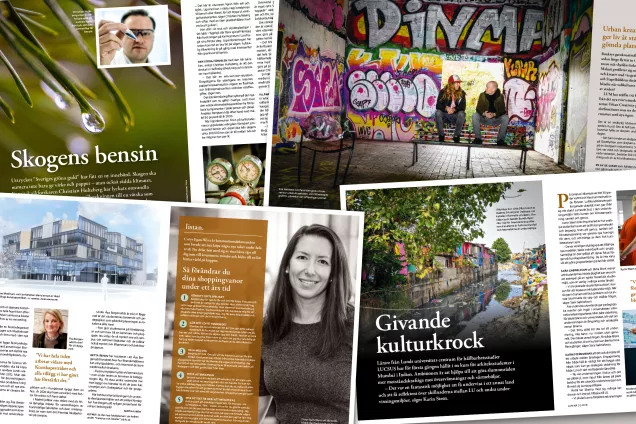Retiring is a major life decision. It means going from one stage of life to another – from being a part of the workforce to being outside it. For many people, it is disconcerting and there are many factors that affect the timing of the decision to retire.
Kerstin Nilsson talks about four types of ageing that we must relate to: Firstly, the biological – if we can physically and mentally manage to continue working. Secondly, chronological ageing linked to financial matters – when can I afford to retire? Thirdly, social ageing, which involves leadership, attitudes and social support in the workplace. A person’s family situation also has an effect. For example, if your partner has retired, it is more common to retire earlier. Fourthly, mental ageing, linked to skills and opportunities to develop.
“Is my working life more exciting and more likely to provide stimulation than life as a pensioner?” says Kerstin Nilsson, researcher at the Division of Occupational and Environmental Medicine, who considers this to be a crucial question.
For Sweden’s pension system to function, we need to work two-thirds of our life. However, we are living longer and there is a record number of 100-year-olds. Today, the average life span in Sweden is 84 for women and 80 for men. This explains why there is a proposal to raise the retirement age to 69. Kerstin Nilsson’s study in 2017, with almost 12 000 respondents, revealed that although 43 per cent can work beyond 65, only 22 per cent want to. A number of changes are required for more people both to be able, and want, to work to a more advanced age.
“Age is the most common form of discrimination and many companies are very neophilic – it’s often the young who are attractive, and the experience that comes from a long working life is not valued.”
Her research shows that at many workplaces the view on older people is rather negative – they are considered to have an inferior education, are unwilling to change and work at a slower pace. They also receive fewer professional development opportunities than their younger colleagues.
“However, there are also organisations that do value the experience and specialist skills of older workers and find them to be more assured, more thorough and less likely to move around as much as younger workers.”
At what age are you considered an old worker? An English survey among managers, shows that the threshold for old colleagues is considered to be 48 for women and 51 for men. In a corresponding study conducted by Kerstin Nilsson among Swedish managers, the results were 59 for women and 59.5 for men.
In order for us to have a more sustainable working life, we need to include the age perspective in a systematic approach to the work environment, considers Kerstin Nilsson. We need to look at stress, a reduced physical workload and more flexible working hours. Bringing in routines for using ergonomic aids in order to prevent later repetitive strain injuries, and implementing job rotation, are other measures that can lead to an extended working life. Kerstin Nilsson also suggests that we introduce a flexible pension system adapted to the work we do.
“Most people do not really want to get a pension – they want to experience passion. We want to be part of a social environment and do something meaningful and interesting. If we can get that in the workplace, then many people will probably want to continue, rather than being compelled to carry on working”, concludes Kerstin Nilsson.
About Kerstin Nilsson
Age: 53
Family: Husband and four adult children: 28, 27, 23 and 21LU as a workplace: Since 2009
Have you ever been discriminated against on the grounds of age? Yes, I believe I was when I applied for a position at a company where having a PhD was seen as an additional qualification, but I was not even called for an interview. I then asked to see the CVs of the other applicants and it was shown that all those called for interview were born in the late 1970s and none of them had PhDs.
When are you planning to retire? I haven’t thought about it – there’s still some time to go! But, if I am healthy and doing a job I enjoy, I would like to work beyond 65.
What’s new? Kerstin Nilsson has developed the swAge model – Sustainable working life for all ages. Visit: www.swage.org
FACT
- The number of people over 65 in the labour market has increased since 2000. The exception is women in traditional occupations. This is because the older age group has increased overall due to changes in the age pyramid. The number of people outside the labour market has also increased.
- In 33 countries, the average life span is now over 80. A period in 2016 – 2017 has been designated as a European year for sustainable working life for all ages.
- In Kerstin Nilsson’s study, covering 11 902 respondents, 81 per cent of 67-years-olds felt younger than their actual age, whereas 62 per cent of 22-year-olds felt older than their actual age.
ÅSA HANSDOTTER


